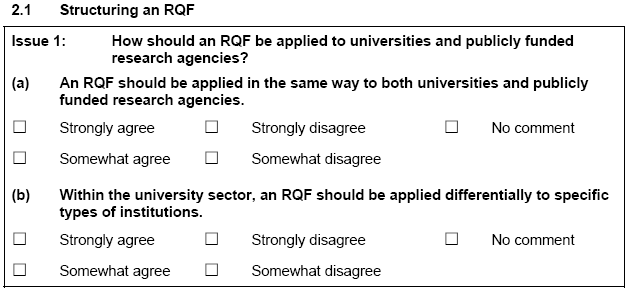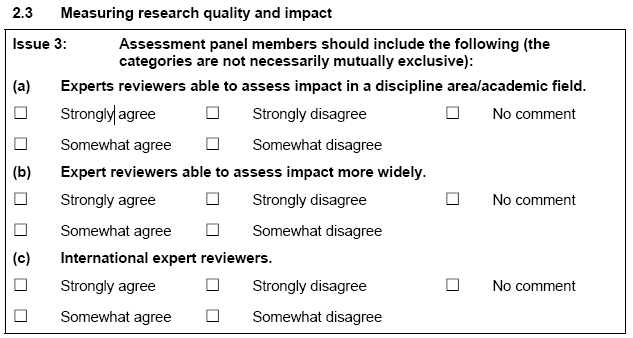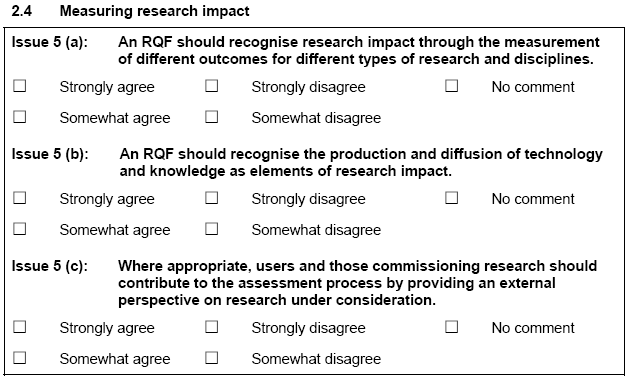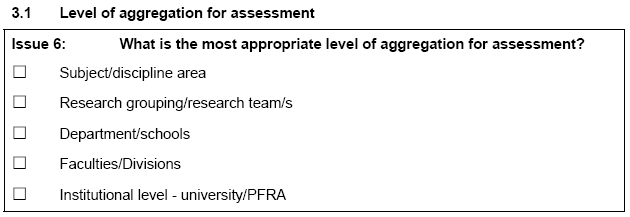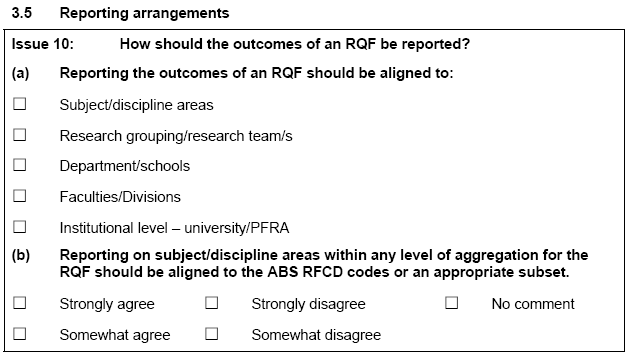|
News & Views item - March 2005 |
![]() "An
RQF [Research Quality Framework], when developed, may be the basis for future
allocations of research funding." (March 29, 2005)
"An
RQF [Research Quality Framework], when developed, may be the basis for future
allocations of research funding." (March 29, 2005)
Above is perhaps the key sentence in the executive summary of the "issues paper" published today for the Research Quality Framework: Assessing the quality and impact of Research in Australia.
Developing the RQF has already involved a collection of thirteen, designated the Expert Advisory Group by the Minister for Education, Science and Training, Brendan Nelson.
According to the Expert Advsory Group's Chairman, Professor Gareth Roberts, in his forward to the issues paper:
After the release of the Issues Paper, followed by a series of State and Territory Forums, and receipt of submissions in response to the Paper, it is proposed that a National Stakeholder Forum be held to progress discussion of specific options for an RQF. An Advanced Approaches Paper will be presented to representatives from universities, PFRAs [Publicly Funded Research Authorities], industry and other key organisations at the Forum together with technical assessment experts.
After these consultations, a preferred model or models of an RQF for assessing research quality will be developed and these models may be trialled in a number of institutions. It is intended that an RQF will assess all research, irrespective of the funding source, undertaken at publicly funded research institutions. Research assessments are already underway for some of Australia’s science agencies and these will also inform possible models. Advice will be presented by the end of 2005 to the Minister for Education, Science and Training, the Hon Dr Brendan Nelson MP, on options for an RQF.
In short this exercise will involve a great many individuals some for considerable periods of time. And between the carefully chosen words of may in the executive summary and may and intended in the chairman's forward, there is no commitment on the part of the government that it will act on the recommendations.
Chief executive of the Australian Vice-Chancellors Committee, John Mullarvey, told The Australian that the AVCC welcomed the issues paper saying it "set[s] the agenda for the debate on assessing the quality and impact of Australian research and government investment" while Federation of Science and Technology Societies president, Snow Barlow, told the broadsheet that the issues paper was a constructive start. "They have recognised there is research that may be high in impact but that under international metrics probably wouldn't measure high in quality."
To assist those who intend to make a submission with regard to the RQF, "There is a series of propositions in Sections 2 and 3 of the Issues Paper. A Submission Template has been developed for responses to the paper. Respondents are asked to reply to all or some of the propositions posed in the paper. There is also an area in the Submission Template for other comments."
And to make it easy the "intendee" is
provided with a series of 13 multiple choice propositions. Readers can decide
for themselves whether or not Sir Humphrey Applebee's advice to Bernard on how
to frame leading questions in a questionnaire in order to get the answers
desired is applicable, or perhaps more to the point, will it cause a dilution of
opinions which are not directed to the thirteen issues conveniently boxed.
